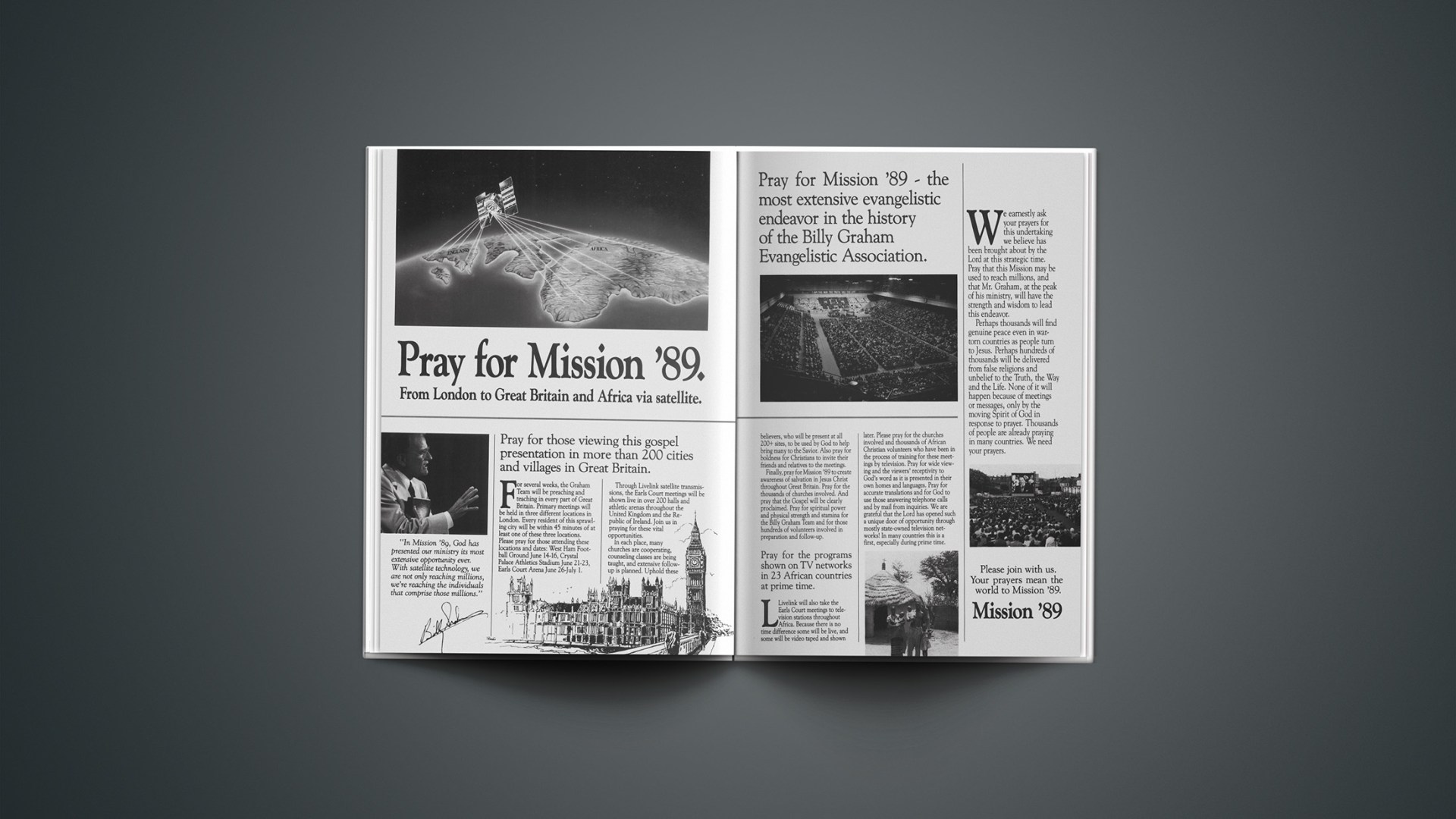It was the height of the U.S. embassy hostage crisis in Tehran; a resurgent Islamic fundamentalism had caught us off guard. Across the luncheon table was a career American diplomat who had once served in an Islamic nation. He was clearly puzzled by the frenzied mobs who had turned with a vengeance against the shah and his Western allies. “We just couldn’t believe,” he confessed, shaking his head in wonderment, “that those people would take religion so seriously.”
I recalled his words during the recent furor over Salman Rushdie’s The Satanic Verses and the Ayatollah Khomeini’s edict that the author must die. The violence of the reaction in some parts of the Islamic world caught most Westerners by surprise. The idea that anyone would hold strongly to a religious conviction leaves secular minds bewildered and confused.
At the same time many evangelicals, I suspect, secretly rejoiced at Islam’s discomfort over Rushdie’s volume. We also have deeply held convictions—convictions that at crucial points are irreconcilable with Islam. We fear Islam’s zeal—a zeal that caused Muhammad’s followers to storm eighth-century Europe and come within a hair of making it Islamic. We know Islam is the fastest-growing major religion in the world, and that by the year 2000 there may be more Muslims than Jews in America.
From another standpoint, however, evangelicals must take no comfort in Islam’s insecurity over Rushdie’s book. The reason is that The Satanic Verses is but a sign of a broader intellectual climate that directly affects us also. The problem: The arts (including serious literature) are largely held captive today by those with a nonreligious or even antireligious mindset.
Vivid illustration of this is given by a new novel by Salman Rushdie’s wife, Marrianne Wiggins. Entitled John Dollar (Harper & Row), it pursues an antireligious theme just as surely as The Satanic Verses—only this time the target is Christianity. “I am an opponent of religion,” Wiggins has said. “I wanted to show how powerful it is and how it needs to be questioned.”
Described by a New York Times reviewer as “one of the most disturbing new novels I’ve read in years,” John Dollar is by turns fascinating, vulgar, and horrifying. In a plot superficially resembling Golding’s Lord of the Flies, eight English schoolgirls are stranded on an island. As time passes, they abandon all pretext of civilization (except for a mockery of the Christianity in which they were raised), descending rapidly into barbarism and, eventually, cannibalism.
At times its anti-Christian bias is merely snide, as in its description of a preacher who was “incapable of stirring souls, even his daughter’s who stared rigidly through his clichés at a spot of breakfast on his chin.…” More often the bias is less obvious but more virulent, as in the subtle comparison of cannibalism with the Eucharist, or the hint that humanity (like the stranded girls) can expect no outside help in this world.
By the time you read this, the public’s judgment on Wiggins’s book will have been made. Whatever its success (which will certainly be greater because of her husband’s worldwide notoriety), the truth remains: Christians live in a world grown increasingly hostile.
Which brings me to the main point of this column: Where are the creative men and women—the writers, the artists, the filmmakers—who will capture the imagination of our confused world in the name of Christ? Where are those who will expose by their work the vanities and contradictions of our age, and affirm with all the skill they can muster that only in Christ “are hidden all the treasures of wisdom and knowledge”?
In recent decades, evangelicals have begun to reenter academic disciplines they once abdicated. But unless we communicate to our generation through the book and other art forms that influence it, our convictions will continue to be judged irrelevant, unworthy of examination by modern secular man.
May God raise up those who will fill this gap.










